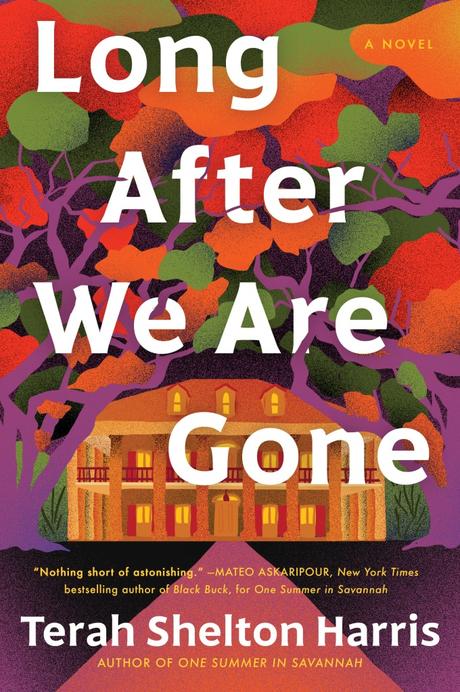There are books you feel “meh” about, and then there are books you feel strongly conflicted about. This one was the latter. I tore through it while on vacation and I really got into this generational family drama. But I also felt the violence was excessive and even glorified. Unlike Hard By a Great Forest, which was violent in a devastating way, this book seemed to equate violence with manhood.

The story is set in North Carolina, where patriarch King has just passed away. His last words to his son are “Don’t let white men get the house.” His four children, Junior, Mance, Cecily and Tokey, reunite for his funeral and then learn that the land they grew up on is being sold to a developer. Some of the siblings desperately need the money and want to sell, but the others are adamant that the land must stay in the family.
The book explores the concept of property inheritance, specifically heir property, which has been common for black families in the United States. largely because they do not trust estate lawyers. Unfortunately that creates legal loopholes where it’s easier for developers to seize property, and it has been recognized as a leading cause of property loss for African-American families.
I loved the complicated nature of the siblings’ relationships with each other and with their father. They know nothing about their mother, and each sibling seems to have settled into a clear role in the family dynamic. Junior is the outcast, a school principal who was considered weak by their father. He’s married but gay; he’s in love with a man but afraid to come out to his family. Mance is the tough guy, who’s carrying on King’s carpentry business, but his toughness has also led to a criminal record. He’s trying to go straight but keeps getting sucked back in to fighting and crime. Cecily is the smart, ambitious one, a lawyer who wants nothing to do with her hometown. She’s also in desperate legal trouble. Tokey, in contrast to her older sister, is the dependent one, the one who’s never left home. She’s struggling with an eating disorder.
Each sibling pair has become extreme opposites, and one thing this book explores is how King as a father encouraged those divisions (though not intentionally). I think this happens to some degree among all siblings. You see your “niche” in the family and you think that’s who you are. It’s only a lot later that you come to understand that you can all be smart, strong, quiet, outgoing, etc.
This is a book with a lot of drama and emotion. The four siblings had very distinct voices and all were sympathetic despite their making some terrible decisions. But I was very troubled by some of the things that happened towards the end, which I found very hard to square with characters I had come to like. In looking at other reviews, I seem to be an outlier on this point, but I found the violence excessive and at times gratuitous. And the idea that all four siblings never once asked any questions about their mother didn’t feel realistic. But there was much about this book I enjoyed and related to, and I really appreciated the complexity and the resolution of the property issue.
Note: I received an advanced review copy of this book from NetGalley and publisher Sourcebooks Landmark. This book published May 14, 2024.

